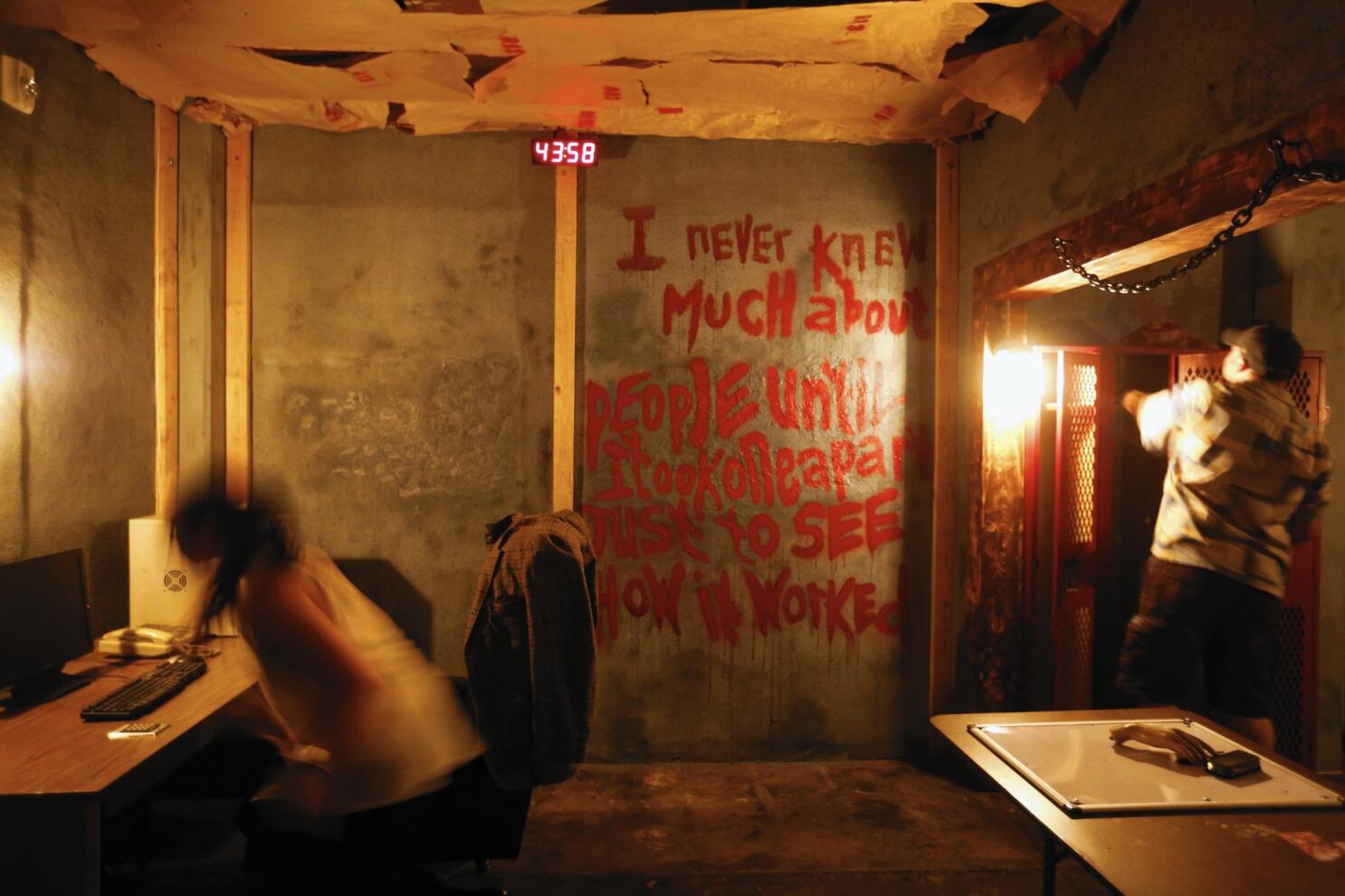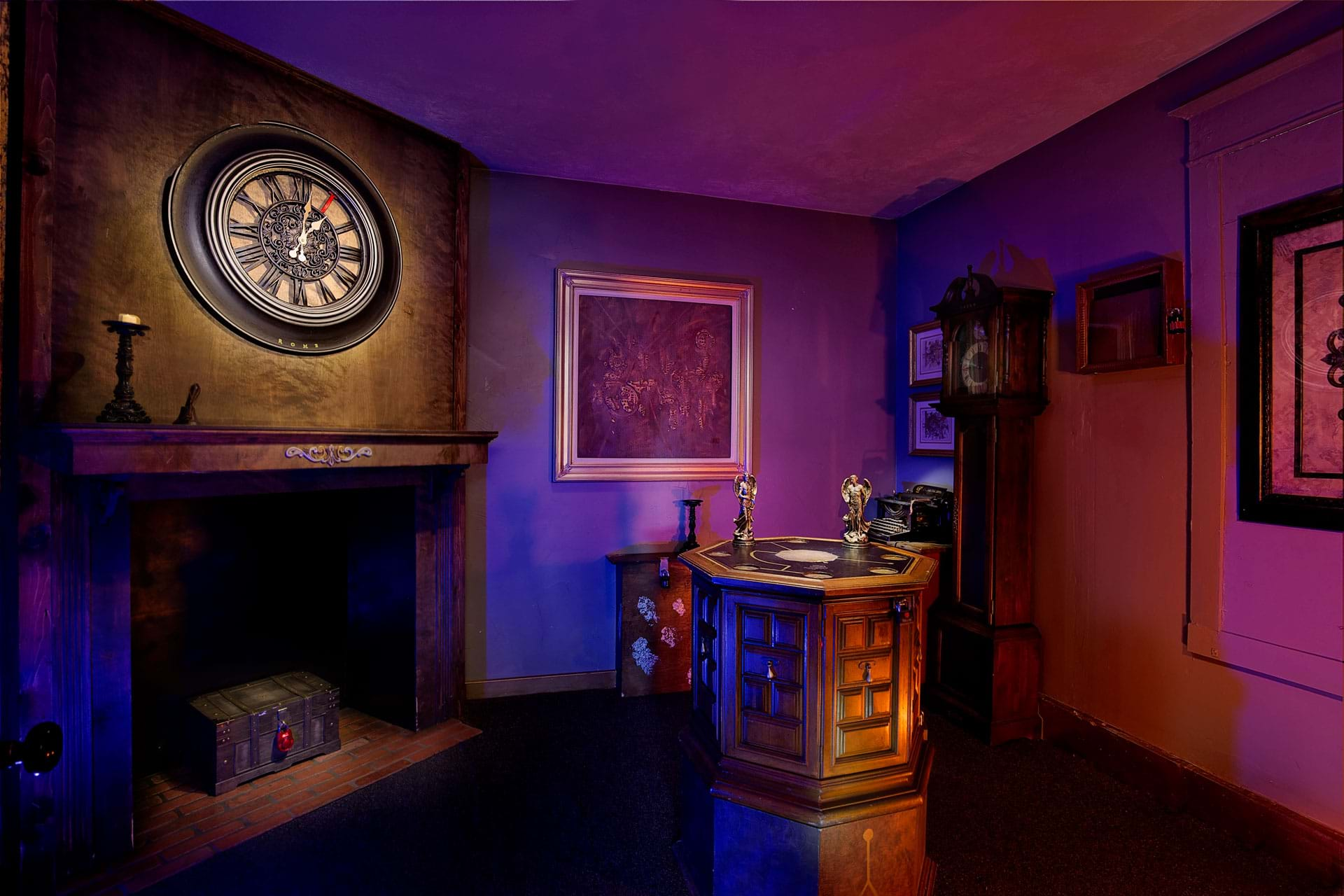Group Methods: How to Work together Effectively in a Getaway Area
Groups need to proactively pay attention to each member's understandings, appoint duties that line up with specific staminas, and keep routine check-ins to ensure emphasis and avoid redundancy. By fostering a setting that values cohesion and flexibility, teams can significantly enhance their performance and success prices.
Establish Clear Communication

To assist in clear interaction, it is necessary to assign a main point of call for information circulation. This function entails summing up findings and recommended approaches to ensure everyone continues to be on the same page. Furthermore, adopting an organized method to conversations can avoid disorderly exchanges. Quick, focused updates from each group participant can keep the team informed without overwhelming them with information - best escape room.

Appoint Duties Purposefully
While clear communication sets the structure for efficient synergy, designating roles purposefully guarantees that each team participant's strengths are made use of successfully. In an escape area situation, the time-sensitive and intricate nature of difficulties necessitates an efficient method to job delegation. By determining and leveraging individual expertises, teams can enhance their problem-solving abilities and improve overall efficiency.
First, assess the unique abilities and attributes of each individual. Someone with an eager eye for information might succeed in finding concealed objects, while a logical thinker might be much better matched to addressing challenges. It's just as important to have a leader that can supervise progression, take care of the timeline, and make crucial calls when required. This function often calls for strong organizational and interpersonal skills.
Second, guarantee that roles are flexible and versatile. As new difficulties arise, the team has to have the ability to pivot, reallocating tasks as needed. This adaptability aids maintain momentum and protects against bottlenecks that might happen because of inflexible role assignments.
Ultimately, a tactical approach to duty project not only makes best use of the toughness of each employee but also cultivates a cohesive atmosphere, driving the team in the direction of a successful escape.
Utilize Diverse Abilities
Recognizing and harnessing the varied skills within your team can substantially elevate your performance in a retreat space. Each employee brings special toughness to the table, and successfully leveraging these capabilities can quicken analytical and boost overall performance. A team participant with solid analytical abilities may succeed at figuring out complicated codes or patterns, while one more with eager observational capabilities might promptly find concealed ideas that others might neglect.
Encourage group participants to articulate their understandings and ideas quickly, making sure that all prospective remedies are thought about. Furthermore, designating tasks that align with each participant's toughness can protect against traffic jams and ensure that progress is continuous.
Moreover, diversity in abilities typically converts to variety in believing styles, which is very useful in a retreat area setting. While some difficulties may require logical reasoning and precision, others could gain from imaginative and association of ideas. By identifying and leveraging this variety, groups can address a more comprehensive variety of obstacles more effectively, therefore boosting their opportunities of an effective retreat.
Manage Time Efficiently

Furthermore, avoid passage vision. If a problem is taking as well long, revolve employee or carry on to another obstacle, returning later with fresh perspectives. Interaction is critical-- maintain everybody click resources updated on solved puzzles and continuing to be jobs to avoid redundant initiatives.
Lastly, use any type of hints or ideas sparingly yet purposefully - best escape room. Knowing when to request for assistance can conserve useful time. By content adhering to these time administration principles, teams can considerably boost their chances of an effective and satisfying getaway area experience
Debrief and Reflect
Representation is a vital element of group development and enhancement in the context of retreat areas. Once the obstacle is finished, whether successfully or otherwise, it is crucial for the team to involve in a structured debriefing session. This process permits employee to examine their efficiency, recognize strengths, and identify locations for renovation.
Begin the debrief by discussing what went well. Highlight certain circumstances of effective communication, analytic, and collaboration. Recognizing these favorable habits reinforces them and urges their repetition in future challenges.
Following, resolve the obstacles came across. Review moments of complication, miscommunication, or inefficient strategies. Urge an open and useful discussion where group participants can share their point of views without concern of objection. This cultivates a society of continual renovation and discovering.
Verdict
Finally, effective collaboration in a retreat area is based upon clear communication, critical role projects, the reliable application of varied skills, and skilled time administration. Regular check-ins and structured debriefings are essential for maintaining focus and fostering continuous enhancement. By creating a cohesive and flexible team setting, the possibility of efficiently solving problems and look at this website achieving the purpose of escaping the area is dramatically improved. This technique not only makes certain success however also promotes cumulative growth and learning.
Comments on “Team Tasks at Minneapolis Escape Room-- Perfect for Buddies and Household”